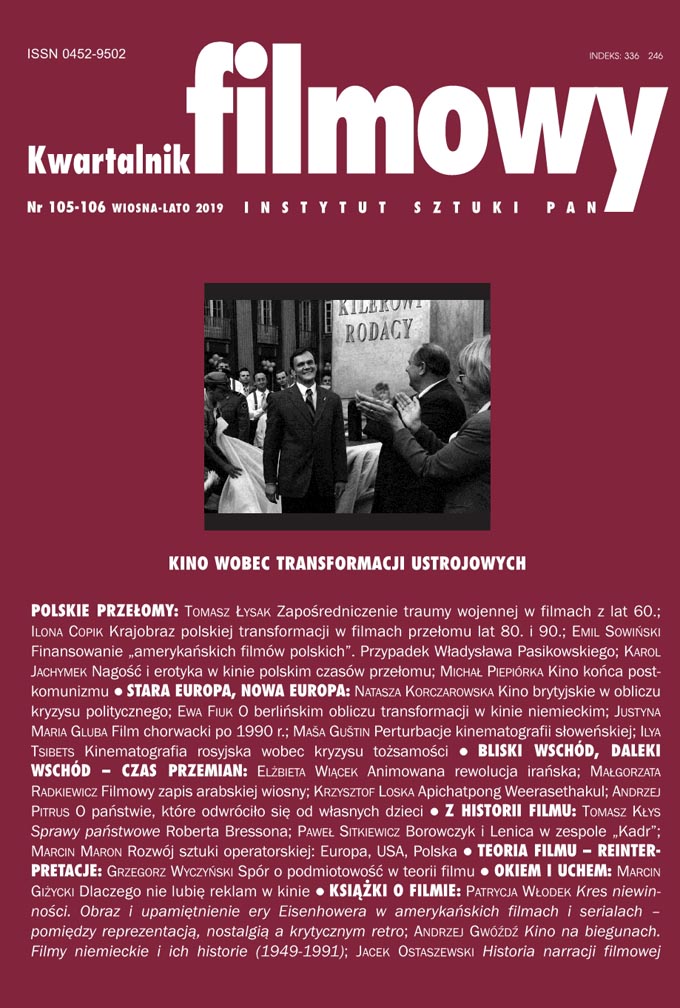Czy kino może uciec od wojennej traumy? Film chorwacki po 1990 r.
Can Cinema Escape the War Trauma? Croatian Cinema After 1990
Author(s): Justyna Maria GlubaSubject(s): Fine Arts / Performing Arts, Visual Arts, Film / Cinema / Cinematography
Published by: Instytut Sztuki Polskiej Akademii Nauk
Keywords: Croatian Cinema;Dalibor Matanić;Ognjen Sviličić
Summary/Abstract: The political transformation in Croatia is inextricably linked with the civil war, in a decisive and brutal manner ending the Yugoslav era. The new reality required the creation of a cinematography that will become independent and write its own story. In the 1990s, the conservative narrative of the ruling party, led by the first Croatian president since the proclamation of independence, Franjo Tuđman, caused the directors to reach for patriotic and Christian motifs. This was, among other things, confirmation of a special mission, of which the ruling elite was convinced, and which consisted in “civilizing” its Balkan neighbours. It was only after Tuđman’s death that filmmakers were able to afford more freedom, both in terms of means of expression and motives. Directors came to the fore, whose youth fell at the moment of the explosion, and later the apogee of the armed conflict. The article takes into account three films created after 2000: „Fine Dead Girls” („Fine mrtve djevojke”, dir. Dalibor Matanić, 2002), „The Lika Cinema” („Kino Lika”, dir. Dalibor Matanić, 2008) and „Sorry for Kung Fu” („Oprosti za kung-fu”, dir. Ognjen Sviličić, 2004). These are films that take advantage of the narrative of contrast: we (Croats) versus them (Serbs, Germany, West), and depart from the subject of war, but still subtly refer to it. Thanks to the topics raised, the directors managed to create – though not comprehensively – a cross-section of post-transformation society, struggling with both the new capitalist reality and the aftermath of wartime experiences.
Journal: Kwartalnik Filmowy
- Issue Year: 2019
- Issue No: 105-106
- Page Range: 120-136
- Page Count: 17
- Language: Polish

